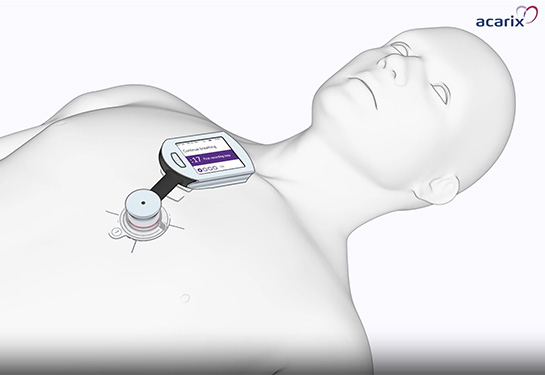Defibrillation
Our heart experts use defibrillation to restore a normal heart rhythm or restart a stopped heart. We specialize in implantable cardioverter defibrillators (ICDs) to prevent serious consequences of certain arrhythmias.
Medically reviewed by M. Bilal Munir, M.D. on Sep. 05, 2023.
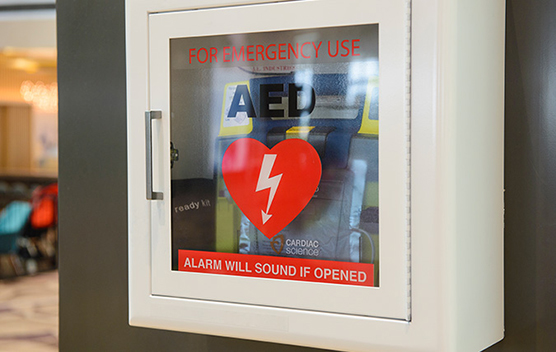
The Latest in Defibrillation Treatments
Defibrillation uses a device to send a safe electrical current to your heart to restore a healthy heartbeat. You may need defibrillation, such as an implantable device, if you have a history of ventricular arrhythmia (irregular heartbeat). You may also need it if you have heart failure with low heart pumping, which can make you vulnerable to developing ventricular arrhythmias. Defibrillation can restart a heart that stops beating during cardiac arrest.
Defibrillation is one of many life-saving heart treatments available at the UC Davis Heart and Vascular Center. We get your heart back in proper rhythm and provide advanced care to lower your risk of cardiac arrest.
Types of Defibrillation
There are different defibrillation methods. The type of defibrillation you need depends on your specific heart event.
Electrical Cardioversion
Emergency care doctors, paramedics and other providers use electrical cardioversion to restart a stopped heart or get an irregular heartbeat into a healthy rhythm. Automated external defibrillators (AEDs) that you see in public places deliver electrical cardioversion.
Implantable Cardioverter Defibrillator (ICD)
An ICD is a small implantable device that sends electrical shocks to your heart when it detects an irregular heartbeat or cardiac arrest. ICDs do not always need to deliver an electrical shock to bring your heart to normal rhythm. Occasionally they can speed up the heart rate faster than the arrhythmia and, in this way, can also restore normal rhythm. Our heart electrophysiologists are experts at surgically placing these devices through small incisions.
Wearable Cardioverter Defibrillator (WCD)
You wear this defibrillator vest underneath your shirt. Sensors in the vest can detect heart changes and send an electric shock to your heart. You may have to wear a WCD to prevent cardiac arrest while waiting to get an ICD or other treatment.
Request an Appointment
As Sacramento's No. 1 hospital, you'll benefit from unique advantages in primary care and specialty care. This includes prevention, diagnosis and treatment options from experts in 150 specialties.
Referring Physicians
To refer a patient, you can submit an electronic referral form or call.
800-4-UCDAVIS
Patients
For questions and appointment information
Consumer Resource Center
800-2-UCDAVIS
If you’re receiving a planned defibrillation treatment for arrhythmia, follow your healthcare provider’s pre-surgery instructions. In an emergency, there isn’t time to prepare for defibrillation.
-
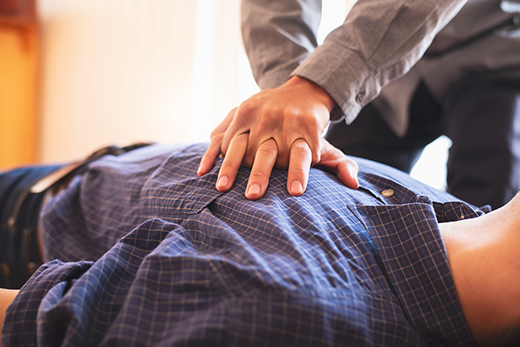
Before Defibrillation
If you experience cardiac arrest, someone may perform CPR until defibrillation takes place. Before sending the electric shock through the defibrillator, make sure that no one is touching the person receiving it.
-
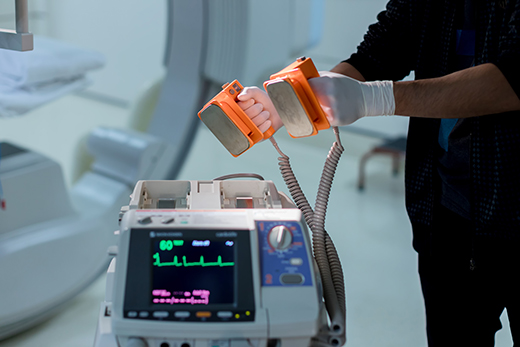
During Defibrillation
The defibrillator device sends an electrical charge to paddles or pads placed on your chest. Your provider applies a gel substance to your chest first to prevent electrical burns.
-
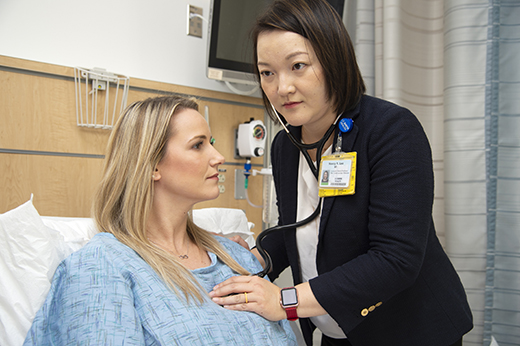
After Defibrillation
You may need another electrical shock, more CPR or medications if your heart doesn’t restart. Our heart experts will determine the next treatment steps to protect your health after defibrillation.
Home Care
It may take months or years to recover from defibrillation for cardiac arrest. Everyone’s experience is different. For the best outcomes, be sure to follow your provider’s instructions.
Take Your Medications
Take medications for arrhythmias or other heart conditions as prescribed by your provider.
Participate in Therapy
Some people benefit from physical therapy or occupational therapy to regain strength and stamina. Your provider may also recommend cardiac rehab.
Don’t Overdo It
You may feel more tired than usual during your recovery. Give your heart and body time to heal.
When to Contact Your Provider
Call your provider if you have signs of an irregular heart rhythm, such as a racing or fluttering heart, chest pain or dizziness.

Ranked among the nation’s best hospitals
A U.S. News & World Report best hospital in cancer, cardiology, heart & vascular surgery, diabetes & endocrinology, ENT, geriatrics, neurology & neurosurgery, obstetrics & gynecology, and pulmonology & lung surgery.

Ranked among the nation’s best children’s hospitals
A U.S. News & World Report best children’s hospital in diabetes & endocrinology, nephrology, and orthopedics*. (*Together with Shriners Children’s)

Ranked Sacramento’s #1 hospital
Ranked Sacramento’s #1 hospital by U.S. News, and high-performing in COPD, colon cancer surgery, diabetes, heart attack, heart failure, hip fracture, hip replacement, kidney failure, leukemia, lymphoma & myeloma, lung cancer surgery, ovarian cancer surgery, pneumonia, prostate cancer surgery, stroke, TAVR, uterine cancer surgery, gastroenterology & GI surgery, and orthopedics.

The nation’s highest nursing honor
UC Davis Medical Center has received Magnet® recognition, the nation’s highest honor for nursing excellence.
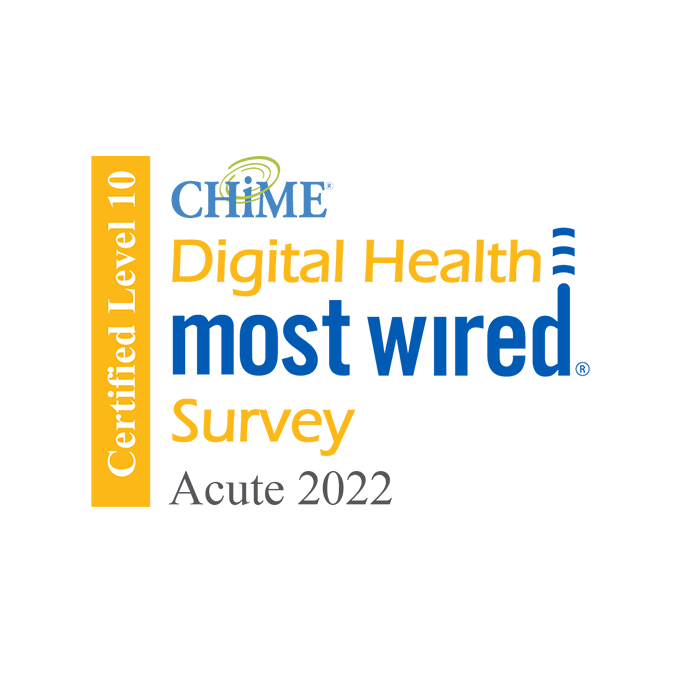
“Most Wired” for acute care
UC Davis Health has been recognized as a level 10 out of 10 in the Digital Health “Most Wired” program from the College of Healthcare Information Management Executives (CHIME). The honor recognizes excellence in using technology to improve the delivery of care.
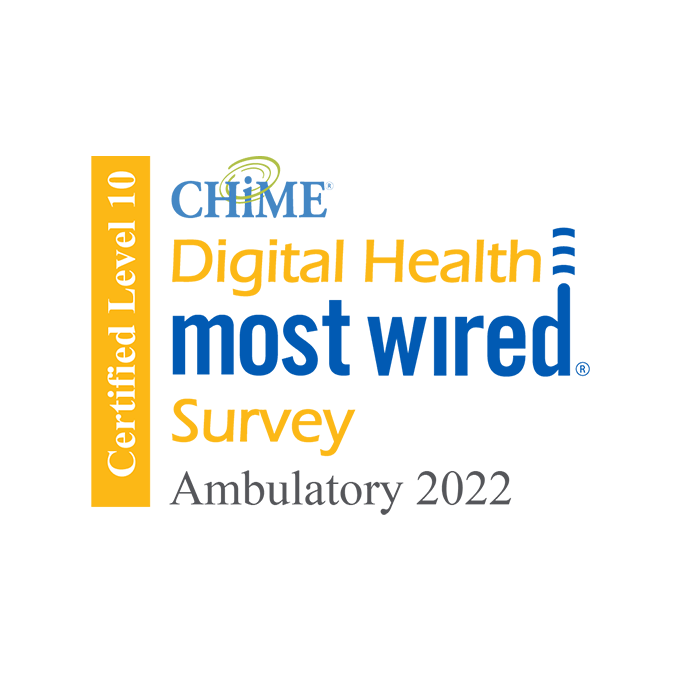
“Most Wired” for ambulatory care
UC Davis Health has been recognized as a level 10 out of 10 in the Digital Health “Most Wired” program from the College of Healthcare Information Management Executives (CHIME). The honor recognizes excellence in using technology to improve the delivery of care.

World-class cancer care
One of ~56 U.S. cancer centers designated “comprehensive” by the National Cancer Institute.

A leader in health care equality
For the 11th consecutive year, UC Davis Medical Center has been recognized as a “Leader in LGBTQ+ Healthcare Equality.”

